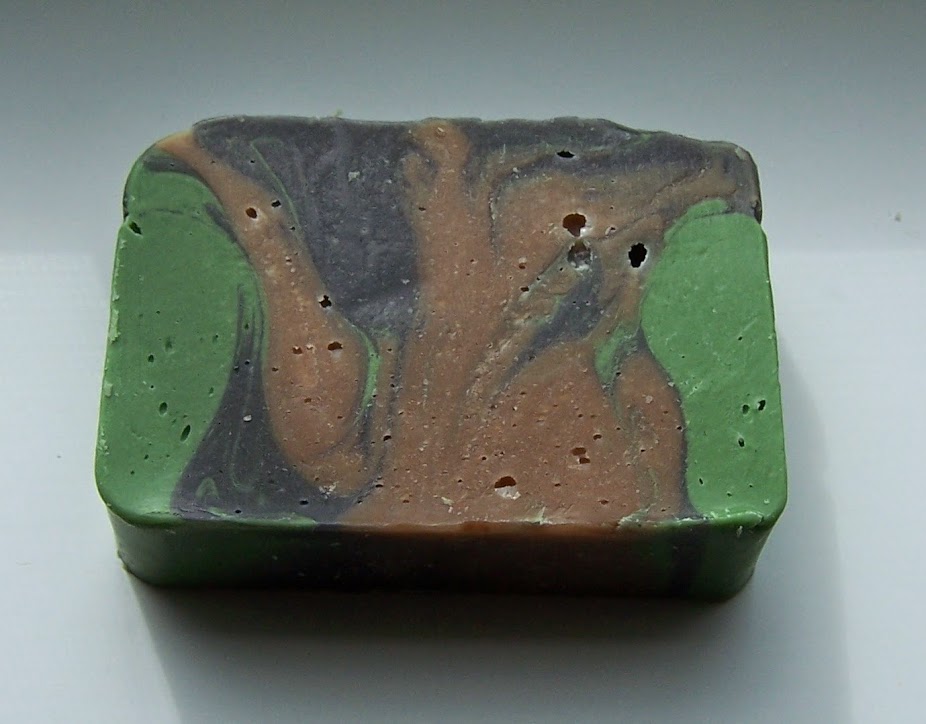Soaping can be fun and it's great to know your using an all natural soap. A few words of caution.
1)Always weigh your measurements. Never use liquid measures or measure by volume as lye will settle and throw off your measures and comes in different forms (ie bead/flake).
2)Use rubber gloves (gloves for washing dishes are great) and goggles when working with lye and raw soap. Don't be afraid but be cautious. Lye is Sodium Hydroxide and it CAN BURN. I've received small lye burns from a raw soap splatter while stirring and I definitely wouldn't want a larger one.
3)Use only stainless steel or nonporous ceramics (crockpot bowl) to mix soap. Aluminium with react with the lye and could be dangerous. If you do use anything plastic reserve it for making soap. It might be possible for lye to leach into plastic and contaminate food. I don't worry about stainless steel and my crockpot although some recommend reserving all your soap making utensils for soap only.
4)Don't substitute one fat/oil for another. They saponify at different rates and you could end up with a lye heavy soap. Use a soap calculator
http://soapcalc.net/calc/SoapCalcWP.asp Is the one that I use. It includes just about any fat you can think of including rabbit fat.
5)Your soap must "cure" before use. Although most soaps can be safely used after about a 24 hr cure time they won't be really nice until 6-8 weeks after you make the soap. The cure time allows the saponification process to complete and lets the soap dry making a harder bar. <br /><br /> __________ Tue Dec 23, 2014 9:04 am __________ <br /><br />
Schipperkesue":290qugmn said:
OMG, those molds are perfect!
Michael, I was taught to try to have the lye and tallow at as close to the same temperature as possible. Do you find this to be important? As well, a slow pour of lye into tallow... Is it important?
Yes, having the temps close is important if you are cold processing in order to get a proper trace. I believe around 120F is what is recommended but I'd have to check for sure. I usually hot process so it's not as critical to have temps close.
Lye and raw soap can BURN. So always be careful and poor slowly.
There is a ton of information about making soap on the internet. Making soap is like learning to cook (with a bit of chemistry) you need to follow a good "recipe" (after being checked through a soap calc) and get a "feel" for what your doing.
With list of all that's needed to do and steps please! That would be so cool, I don't get a lot of fat but it would be better than letting it get chucked to wast or feed the rat population that's surfaced and stealing from the dog :angry:












